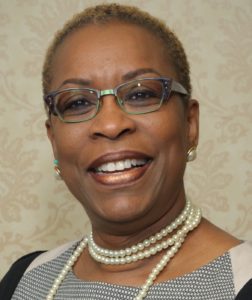
by Dianne Williams
I was honored to not only have had an opportunity to introduce Dr. Neu, but I also had an opportunity to have dinner with her and a few other participants/facilitators.
Dr. Neu spoke to a need to address the root cause of the conflict and not just the symptom, a perspective that resonates deeply with me, not only in my capacity of a Criminologist but, and perhaps more importantly, as a certified mediator. She also shared her conflict assessment, mediation, dialogue processes, facilitation, and evaluation, skills. She discussed Mediation Theory and practice from an international conflict perspective and focused on topics near and dear to my heart, including the causes of conflict, meeting human needs, and injustice meted out to marginalized group.
Other critical issues she discussed were the malignant consequences of armed conflict as well as the vertical and horizontal spread of the conflict – specifically the impact on secondary victims. This was instructive as I regularly teach a Victimology class at my university and am returning with a broader and deeper perspective on the plight of the victims.
In her discussion of Preventative Diplomacy she shared an important fact that conflict prevention cannot be measured, meaning no one knows the good work you do. But then – that shouldn’t be the intent of conflict prevention.
I learned that, ideally, a peace process is linear but that one very rarely goes straight through. In reality, there are always bumps in the road because most conflicts have multiple processes within the same conflict, forcing peacebuilders to frequently shuttle back and forth among them. This speaks to the persistence needed by practitioners.
Another point Dr. Neu made that resonated with me was that career conflict professionals, who are serious about it as a career, generally know when they can mediate and when they can’t. Understanding this distinction and being willing to follow it speaks to the need for humility.
She gave us little hints such as, if the situation is not ripe (i.e., they don’t really want to get involved in the process) then it is our responsibility to show them what they are losing, to help them understand that there is a problem, and that it is worth their time to get involved. Providing them with more understanding of what is at stake is one part of ripening a conflict.
She emphasized that constructing a peace agreement is an art. They are quite difficult to craft, and there is no single right way to do so.
These were all life lessons to me. As a certified mediator and trainer facilitator, my goal from attending IPSI’s Bologna Symposium was to gain the international perspective. As I continue through the program, it is clear to me that I am being groomed for international diplomacy. I have no doubt that this experience will add value to the skills I already bring to the table, and I look forward to opportunities to serve the international community as we work toward achieving world peace.

